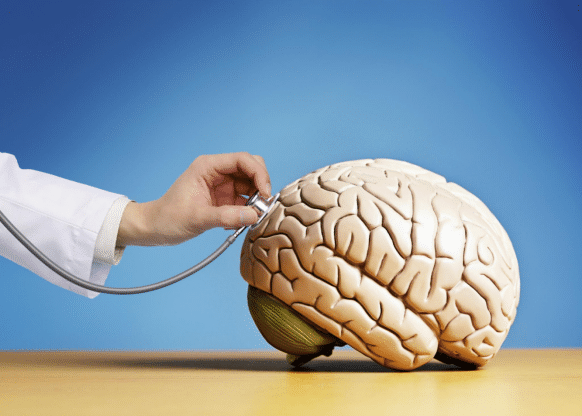In recent years, everyone’s living conditions have been improving, but ironically, our health is not as robust as that of our elders. The main reason for this is that now the diet conditions are better, and we can eat whatever we want. In the past, people could only eat meat during special occasions like festivals, but now almost every meal for every household consists of a lot of meat and fish.
As the saying goes, “illness comes from the mouth,” and it’s not without reason. Some unhealthy foods quietly enter our bodies, which is why the number of patients with high blood lipids has been increasing in recent years, affecting not only the elderly but also the young. If blood lipids remain at a peak for a long time without timely control, it can easily lead to blood vessel blockages, resulting in cerebral infarction.
Eating eggs every day can trigger cerebral infarction? Doctors remind us: don’t believe rumors to avoid causing panic! In daily life, excessive intake of foods high in fat and cholesterol can elevate blood lipids, leading to blood vessel hardening. Eggs are a commonly consumed food item, rich in amino acids and protein. There is a belief that individuals with high blood lipids worsen their blood viscosity by consuming eggs daily. However, this belief is somewhat one-sided.
Although eggs contain cholesterol, the levels are very low, primarily found in the egg yolk, insufficient to impact our blood, let alone be the reason for causing cerebral infarction!
These two commonly seen foods on the dining table are labeled by doctors as “accelerators” of increased blood lipids.
1. Pig kidneys: The concept of “like cures like” has been passed down in China for a long time, and many elderly people believe in it. Most men like to eat pig kidneys, thinking they are nourishing, but they tend to overlook that pig kidneys contain extremely high levels of fat and cholesterol. Eating occasionally is harmless, but frequent consumption can lead to increased blood viscosity, causing artery hardening and triggering a series of vascular diseases.
2. Fatty meat: For young people, fatty meat is not consumed regularly. However, some elderly people particularly enjoy it, especially a plate of authentic braised pork, which is often very appealing. Even though fatty meat is processed into braised pork, the fat content inside does not decrease but increases. Studies show that the fat content in fatty meat can be as high as 90%. Regular consumption of fatty meat can elevate blood lipids and trigger cerebral infarction.
Cerebral infarction ranks first among cardiovascular and cerebrovascular diseases, posing a threat to one’s physical health. The most critical aspect is that cerebral infarction occurs rapidly and urgently. Once the golden 3-hour window is missed, even if rushed to the hospital for treatment, it might be too late. Therefore, to reduce the occurrence of cerebral infarction, apart from paying attention to diet, the following points should be noted.
Adhere to the following two practices to maintain blood vessels and prevent cerebral infarction:
1. Learn to control emotions: On many occasions, elderly people suddenly faint due to extreme anger, triggering cerebral infarction and other conditions. This has a scientific basis because intense emotions can lead to frequent pumping of the heart, causing blood vessel ruptures and inducing conditions like heart attacks and cerebral infarctions. Consequently, regardless of the situation, strive to maintain a calm demeanor, avoiding drastic emotional fluctuations that can trigger sudden illnesses.
2. Strictly control your weight: Once the body becomes too obese, the accumulation of fat increases the burden on various organs, affecting blood circulation speed and triggering cerebral infarction. Severe obesity not only elevates the risk of developing “three highs” conditions but is also detrimental to overall health. It is necessary to lose weight through exercise or other means to maintain good health.


